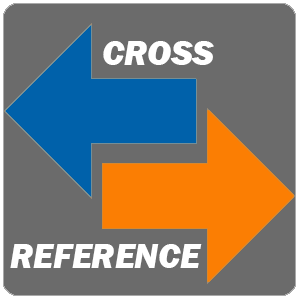Cross references are the instructions in an index that point a user from one place to another, usually taking the form of See or See also. They’re awfully convenient for indexers, providing a way to collect information outside the structure of the index. That is, they function like hyperlinks, drawing connections between one topic and another, when the […]
Usability: Understanding Cross References, Part I
Cross references — those little notes that tell a reader to look elsewhere in the index for information — are a much-loved tool for many indexers (Hans Wellisch gives them 10 pages in Indexing from A to Z). They’re quiet instructions, helping readers get acquainted with the author’s word choices. They neatly connect bits and pieces of the index, highlighting […]
Working with Authors’ Term Lists
Something indexers often get are term lists from authors. These can range from a handful of key concepts to a complete index, with the comment that “the index is done, and all you have to do is put in the page numbers.” Many indexers, having been faced with the latter example, reject author term lists […]
Tracking Process, not Just Progress
John Steinbeck famously kept a diary of his writing process, a practice familiar to many writers, including novelist Sue Grafton and memoirist Louise deSalvo. These diaries, which deSalvo calls “process journals” serve to chronicle only the process of writing, not the rest of life, and often one single writing project at a time. Grafton opened […]
Collaborative Projects and Working with Teams
At PI, we specialize in team projects. Whether it’s collaboration among the partners on business matters or a larger project involving associates, like our embedded indexing work for O’Reilly Media, collaboration comes up in some form in everything we do. Benefits of collaboration Working together has obvious benefits, like sharing the workload to meet tight […]
Indexing Multi-Author Works
Indexing multi-author works can be a real challenge. Vocabulary control, adjusting to different writing styles, and structural decisions are all concerns. The most important thing when working on a multi-author work, whether a book of essays or a collection of previously published articles, is to make sure you have a single decision maker. This can […]







